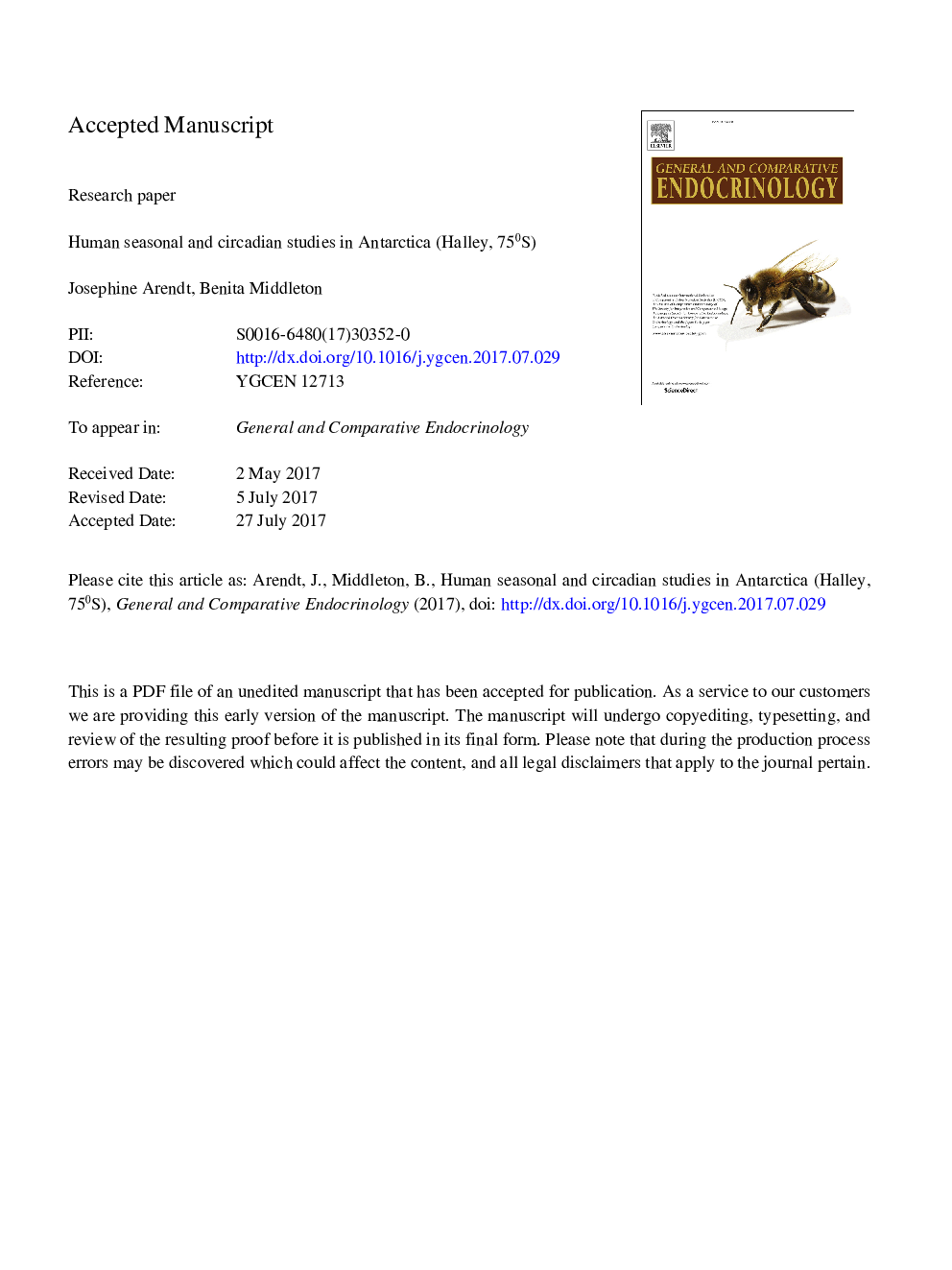| کد مقاله | کد نشریه | سال انتشار | مقاله انگلیسی | نسخه تمام متن |
|---|---|---|---|---|
| 8631241 | 1568849 | 2018 | 29 صفحه PDF | دانلود رایگان |
عنوان انگلیسی مقاله ISI
Tectal corticotropin-releasing factor (CRF) neurons respond to fasting and a reactive stressor in the African Clawed Frog, Xenopus laevis
دانلود مقاله + سفارش ترجمه
دانلود مقاله ISI انگلیسی
رایگان برای ایرانیان
کلمات کلیدی
موضوعات مرتبط
علوم زیستی و بیوفناوری
بیوشیمی، ژنتیک و زیست شناسی مولکولی
علوم غدد
پیش نمایش صفحه اول مقاله

چکیده انگلیسی
It is well established that hypothalamic neurons producing the peptide corticotropin-releasing factor (CRF) play a key role in stress adaptation, including reduction of food intake when a threat or stressor is present. We have previously reported on the presence of an intrinsic CRF signaling system within the optic tectum (OT), a brain area that plays a key role in visually guided prey capture/predator avoidance decisions. To better understand the potential role of tectal CRF neurons in regulating adaptive behavior and energy balance during stress we examined evidence for modulation of tectal CRF neuronal activity after stressor exposure and food deprivation in the African clawed frog Xenopus laevis. We tested two predictions, 1) that exposure to categorically distinct stressors (ether vapors and shaking) will reduce food intake and modulate the activity of tectal CRF cells, and 2) that food deprivation will modulate the activity of tectal CRF cells. Exposure to ether increased tectal content of CRF and CRF transcript, but lowed CRFR1 transcript abundance. Two weeks of food deprivation reduced total fat stores in frogs and decreased tectal content of CRF content while having no effect on CRF and CRFR1 transcript abundance. Our data are consistent with a role for tectal CRF neurons in modulating food intake in response to certain stressors.
ناشر
Database: Elsevier - ScienceDirect (ساینس دایرکت)
Journal: General and Comparative Endocrinology - Volume 258, 1 March 2018, Pages 91-98
Journal: General and Comparative Endocrinology - Volume 258, 1 March 2018, Pages 91-98
نویسندگان
Christine M. Prater, Carlos Garcia, Liam P. McGuire, James A. Carr,